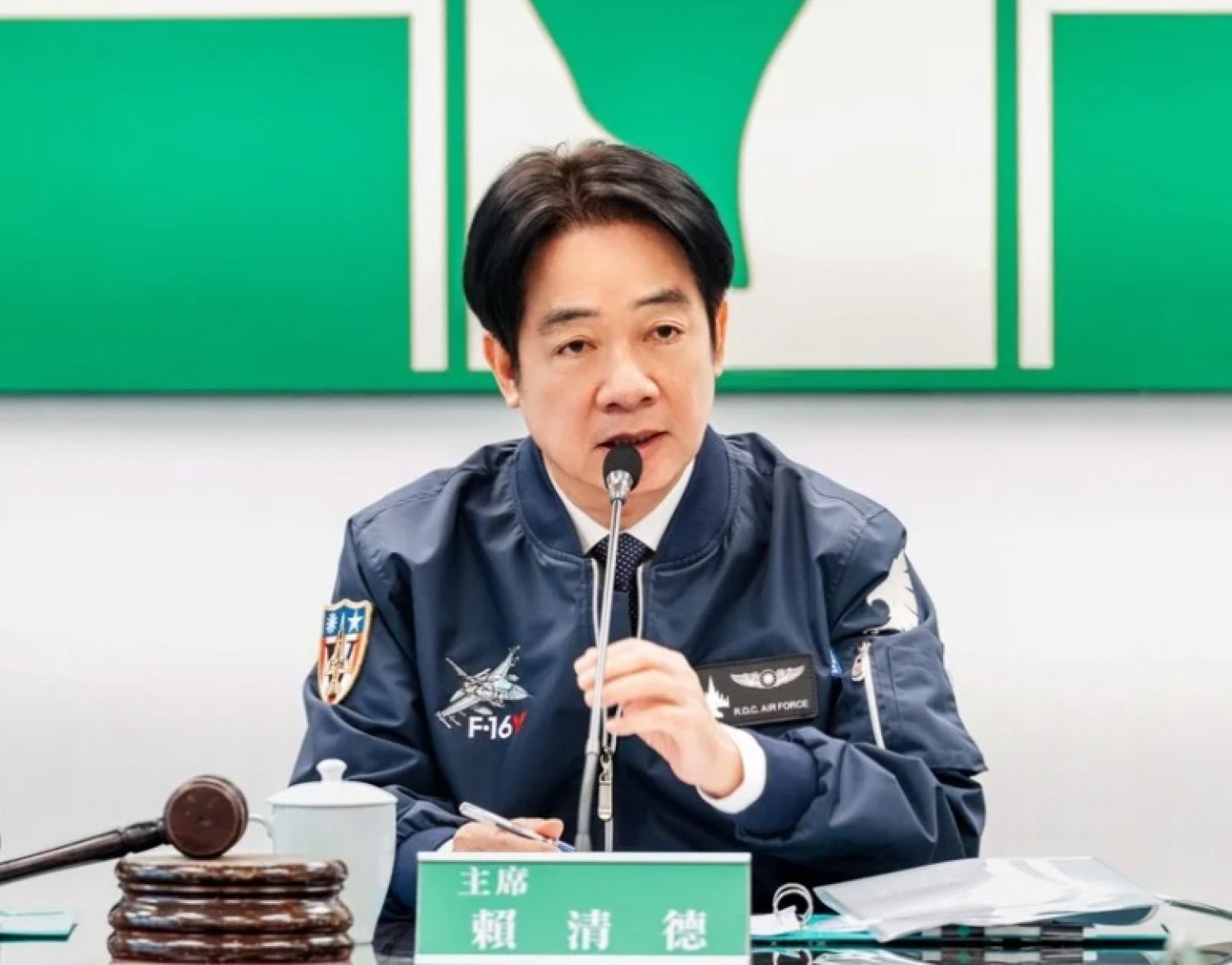
President Lai Calls for Decoupling from China and Joining the Global North: Aspiring Cession to the U.S.?
United Daily News Commentary, April 10, 2025
At a recent Democratic Progressive Party (DPP) Central Standing Committee meeting, President Lai Ching-te, who doubles as the party chairman, invited Wu Chieh-min, a research fellow at Academia Sinica's Institute of Sociology, to present a report on solutions to the U.S. tariff war. President Lai strongly endorsed Wu's proposed trend of "breaking away from China and joining the Global North," viewing it as a positive direction and declaring that Taiwan would leverage this strategy to establish a "Global Taiwan."
As U.S. President Donald Trump wages a global tariff war, the Center for Strategic and International Studies (CSIS) describes the world's response as progressing through "five stages of grief": denial, anger, bargaining, depression, and acceptance. While China remains stuck in the anger stage, the Lai administration rapidly moved from denial (claiming errors in tariff calculations), to anger (crying foul over unfair treatment), to bargaining (pushing for zero tariffs), to depression (recognizing the widespread impact), and finally to full acceptance (massive investments, major procurement deals, and barrier removals). This explains the dramatic shift in President Lai's attitude—from initial defiance to eager compliance.
In truth, small and weak nations have little choice but to grit their teeth under Mr. Trump's tariff hammer, desperately seeking negotiations to obtain exemptions or reductions. Mr. Trump, emboldened, even mockingly stated that countries are calling and flattering him, pleading, "Please, sir, I'll do anything to strike a deal."
President Lai's response evolved rapidly. As his government prostrated itself before Washington, it also sought academic justifications to legitimize its obeisance, turning it into a solemn, ritualized display—making the submission look more dignified and less humiliating.
This reflects the emerging trend of capital "decoupling from China and flowing into the Global North"—to the United States, Japan, and Europe. President Lai believes Taiwanese businesses are ascending to the top of the global value chain and are fast becoming part of the global core. Taiwan, he argues, should "decouple from China and join the North," investing globally and forming a "Global Taiwan." By aligning Taiwan with the democratic nations of the Global North and constructing a new "Silicon Shield 2.0"—primarily through a "Taiwan + America" framework—he envisions turning crisis into opportunity.
However, President Lai's rhetoric about "breaking away from China and joining the North" inevitably recalls Japan's historical strategy of "leaving Asia and entering Europe." While Japan rapidly modernized and rose to power through that strategy, its disdain for China, Korea, and Asia contributed to wars and tragedies from which Japan ultimately suffered as well. Within the DPP, there have long been strains of "de-Sinicization" and pro-Japanese sentiment. President Lai's recent adversarial policies toward Chinese spouses in Taiwan also reveal shadows of this "de-China" mentality.
President Lai advocates "breaking from China," but can Taiwan truly "join the North"? He is offering semiconductors as Taiwan's ticket, hoping to build a "Silicon Shield 2.0." Yet the United States openly seeks to seize Taiwan's semiconductor assets without any intention of guaranteeing Taiwan's security. The original "Silicon Shield" has already been swept away by Mr. Trump, yet President Lai still dreams of a "Silicon Shield 2.0"? He believes that worsening the U.S.-China conflict will somehow ensure Taiwan's safety—is this realistic?
Moreover, while President Lai may cajole or coerce Taiwan's semiconductor and electronics industries to move production to the United States, what about Taiwan's traditional industries and the millions of workers who have no pathway "into the North"? Are they to be discarded?
The irony is sharp: President Lai is eager to "join the North," but the United States itself is turning its back not only on the Global South but increasingly on the Global North as well. Major Northern nations like Canada and the European Union are preparing retaliatory measures against Mr. Trump's policies, and even non-retaliatory nations like Australia and Singapore have harshly criticized the United States for betraying its allies.
The DPP once dreamed of "leaving China and joining Japan" but failed; now President Lai advocates "leaving China and joining the North," though what he really seems to crave is "breaking away from China to join America." Yet the United States is happy to accept tribute without offering protection in return.
Perhaps it's time to be blunt: President Lai's real dream might be not just to align with America—but to beat Canada and become the 51st state of the United States.
From: https://udn.com/news/story/11091/8665956
〈Back to Taiwan Weekly Newsletter〉